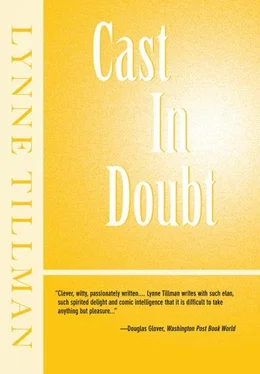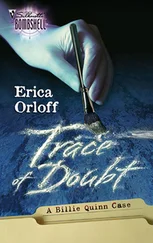I must record an incident that were I reading this I should probably not accept it as fact. But it is true. In this lonely area, off the beaten path, as it were, and without a thought in my mind. I came upon first a Gypsy woman, not the Gypsy woman, but one who looked as if she could have been her mother, or at least a relation, and then her children, or children, and some Gypsy men. They appeared from nowhere, at least I thought that for a moment, until I realized that I had by chance come upon an encampment. My excitement cannot be measured. It was a dream come true. I was lucky. Still it is really not so strange, as there are at least eighty thousand Gypsies in Crete.
Happening upon them like this, I am shaken, almost breathless. I had no plan, yet, I exhorted myself heartily, that is the plan. From what I had read about them, I still did not know what to expect, nor had I been tutored or prepared in the ways of greeting them. I knew I wanted them to know instantly that I was not like the others — the gadje for whom they had disdain, yet whom they also feared, from whom they might steal or at whom they might sneer.
I decide that the best action is inaction — I will do nothing. I will wait.
With my back to them I stand looking at the view for some time. I have no way of knowing if they are looking at me. I think they must be — at the least they must be aware of my presence. It is better just to let them study me, without any intervention on my part. I am not frightened in the usual sense, my heart is not pounding, but I am very much conscious of the fact that there is only one of me and several or many of them. The odds are on their side should things go awry, I remind myself. On the other hand, I am strangely sanguine. They will quickly learn that there is nothing to fear from me.
It is growing colder and getting dark. I turn, not too quickly, and walk back to my car. I grab a bottle of ouzo. Without hesitation and with a cheerful alacrity, I carry the ouzo to the older Gypsy woman, who seems to be the clan’s matriarch. There is a younger woman, a girl, beside her, I see now. She is bedecked and bejeweled, wearing a striped dress that looks like a bathrobe I once had. She herself is very like a photograph of a Gypsy I once saw in a New York gallery, I think. They both are, in fact.
The older woman stares at me and accepts my offering. I then announce in Greek that my name is Horace. She nods. Then I state, also in Greek, that I am a gadjo, living in Crete, but that I am originally from America, that I was born there. She appears to be startled, I suppose by my declaration that I am not a Gypsy, for of course she knows without my telling her that I am not one of them. What I was hoping to do was to indicate that I had some knowledge of them, their language and ways, that I was not merely one of the stupid sedentary ones. But after her initial surprise, the woman breaks into peals of laughter and repeats what I have just said to the family, even the children — all have gathered about us — and then she slaps me brusquely on the back. With surprise I too realize that my presentation of self is humorous and chuckle along with her, with all of them. The oldest of the men — the chief of the family, perhaps — opens the bottle of ouzo, from which we all drink. Glasses of many types and sizes have appeared as well as a large pitcher of water. I mix my ouzo with water by the light of a lantern that hangs above us.
Several rounds of liquor are consumed in a short time, which is characterized by liveliness and gaiety. At some point we all move into a large caravan that is parked behind a clump of trees and bushes, and along with the ouzo and raki and other liquor, which one of them had brewed, there is also some food. I am thankful for that. I am also grateful to them for their hospitality. I can sleep there should I want to. That is also lucky because I should not drive.
The men tell stories; they take great pride in their narrative skills. The storyteller, I know from my reading, is beloved among the Gypsies. In the community, the stature of a man is to a large degree determined by how well he speaks. One of the stories told is about why the Gypsies are the smartest people on earth and another has to do with why the Gypsies steal. The former is long and involved, the latter short and devilishly ambiguous. When Christ was to be crucified, a Gypsy stole one of the four nails meant to nail him to the cross, the one meant to pierce Christ’s heart. Before he died, Christ, out of gratitude for the Gypsy’s theft, stated that forevermore the Gypsies could roam the world and would be the only people free to steal. All the Gypsies laugh loudly at this story. I smile but am confused, perhaps contrite, as this is the very attack that I — and others — would have mounted previous to my brief study of them. It is an awkward moment, but it passes quickly with the arrival of more food.
One of the young men is most intrigued by my desire to find Helen and asks many questions about her, some of which I am not able to answer. What is her birth sign? Will she have children? Where was she born? What is her mother’s name? There is a general discussion about which of their younger women could be with her, but none of them think it likely that they know the young woman. The fetching young man — he is hardly more than a boy, I think — has a ready smile, an easy smile. He is winning and charming, with none of Yannis’ surliness. Even so I decline a card game with him; I have never been a great fan of cards, though I bear a poker face. After I disclose that I am a writer, he shows me some papers which have to do with a Gypsy organization and a conference that had been held in 1971, to press the world for Gypsy rights. About this cause he is impassioned, and he speaks a good, grammatical Greek. He has had some formal education, I think. Though I believe that is contrary to Gypsy dictates.
I am most interested in this young man — his name is Roman — and his involvement in his people. It is, in a sense, not unlike my own. Do the Gypsies, I finally ask, now agitate for their own country or state? At this they all laugh, and one says, how gadje that is of me, or something of that kind, but in a friendly manner. Roman explains that some Gypsies want a territory where they would not be forced to be like everyone else and to obey laws and rules that are not their own. They hope to escape harassment and persecution. We are already a nation, he explains for my benefit, and in Romany, I believe it is, and then Greek, exclaims, All Roma are brothers! Immediately an argument ensues among them about the Gypsies’ having conferences at all as well as questions about their submitting to organizations, which also are seen as gadje. This is stated succinctly by the older woman.
But the argument is cut short. Roman takes out his violin — he can play too! — and I am reminded of Gwen’s association with Django Reinhardt’s nephew. A melancholy and haunting melody fills the caravan. Even though it is a cold night, we drift out the door, and one by one everyone dances under the moonlight. First the young woman in the striped bathrobe sways and claps her hands and strikes a tambourine, and even the children, who are still awake, join in. I too dance. It strikes me that I do not know how the night will end and about that I am nearly ecstatic.
Feeling inconceivably like Noel Coward, I whirl about alone, but then dance with the older woman, whose crinkly amber eyes remind me, and this is uncanny, of my mother, who would have been shocked by the comparison. But does anyone know anything other than by comparison?
The next morning I awake, and all about me is commotion and movement. My head pounds ferociously. Immediately I am in a panic, as I am disoriented by my new, strange surroundings. I attempt to calm myself. Sigá, sigá, I intone silently. I lie quietly in the makeshift bed. I think again of Gwen, who can always reassure me in her no-nonsense way. Where is she now? What did she once quote me — something from Mao Tse-tung, about it’s always being darkest before it is black.
Читать дальше












